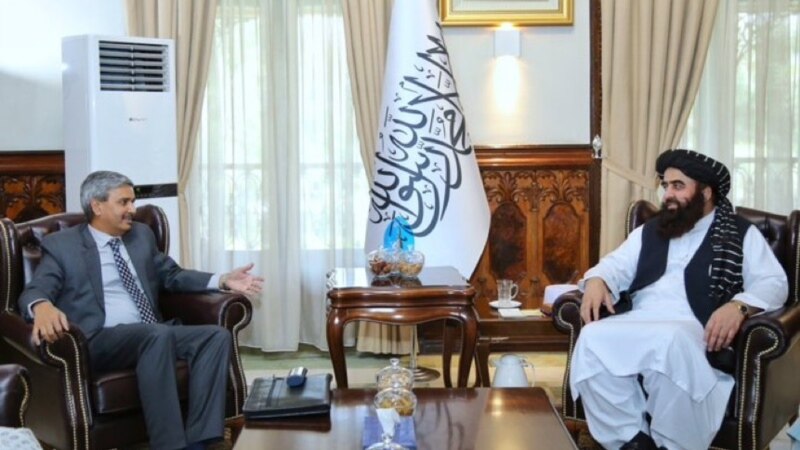
Just two weeks after top Indian diplomat Manmohan Singh visited Kabul to meet with Taliban officials, a senior U.S. official arrived in New Delhi to discuss Afghanistan.
US Special Representative for Afghanistan Thomas West urged Indian Foreign Secretary Vinay Kwatra to develop a “unified diplomatic approach that supports collective interests” in Afghanistan.
Unlike India, the United States has severed diplomatic ties with Kabul since it withdrew its troops from war-torn Afghanistan in 2021.
Washington maintains a policy of sanctions and isolation against Taliban leaders.
Some analysts have criticized the approach as ineffective, but U.S. officials insist nothing will change until the Taliban lifts its ban on women’s education and work and forms a more inclusive government.
“The United States will continue to pursue policies in Afghanistan that protect our national interests and support the Afghan people,” a State Department spokesperson wrote to VOA.
India has taken a different approach.
Rustam Shah Mohmand, a former Pakistani ambassador to Kabul, said Pakistan believed the Taliban had brought a degree of stability to Afghanistan after 20 years of civil war.
“India is concerned about Afghanistan’s mineral resources and wants to gain trade and energy transit access to Central Asia,” Mohmand told VOA.
During their meeting with Acting Taliban Foreign Minister Aamir Khan Mutaji, Singh and other Indian representatives also talked about “enhancing trade through Chabahar port,” a Taliban foreign ministry statement said. Chabahar is a seaport in southeastern Iran. India hopes to use the port to establish trade routes.
The United States has no such interest.
However, a State Department spokesman said it respected India’s need to pursue its national interests by engaging with the Taliban.
Counter-terrorism
The terrorist threat from Afghanistan has long been a major concern for the United States and India.
U.S. officials have regularly warned the Taliban not to harbor al Qaeda and other militant groups that could endanger U.S. interests.
Likewise, New Delhi is concerned about groups such as Lashkar-e-Taiba and its alleged acts of terrorism against India.
The Taliban insist that they do not and will not allow any group to use Afghan soil to threaten other countries.
“While both Washington and New Delhi claim to have a common interest in combating radicalization, neither country has a policy to combat the phenomenon,” said Raghav Sharma, professor of international affairs at Jindal Global University in India.
U.S. officials say the United States relies on “beyond visual line of sight” capabilities such as drones and satellite imagery to counter terrorist threats in Afghanistan despite the geographical distance.
Lacking similar resources, India chose to engage directly with the Taliban to mitigate potential security risks from Afghanistan.
regional interests
In the past two years, U.S. public diplomacy has focused primarily on women’s rights in Afghanistan and criticized the Taliban’s misogynistic policies.
However, countries surrounding Afghanistan have taken a more pragmatic approach, maintaining diplomatic and trade relations despite human rights concerns.
Although no country officially recognizes the Taliban government, the Islamic Emirate of Afghanistan (the Taliban’s official name) maintains diplomatic missions in 38 countries.
These include close U.S. allies such as Italy, Japan, Norway and Turkey, which maintain diplomats in Kabul.
U.S. officials say there is broad international consensus against recognizing the Taliban government.
The Taliban accuse the United States of using its influence to deny Afghans representation at the United Nations and other international platforms.
“India may give them de facto recognition [the Taliban] Sharma told VOA that “after India’s general election in April, they will endorse their diplomats.” This would put the country “broadly in line with the actions of most major players in the region.”
Amid rising tensions between Pakistan and the Afghan Taliban, India sees an opportunity to forge better relations with Kabul. India and Pakistan have a long history of tensions, dating back to the partition of the Indian subcontinent in 1947.
Follow us on Google news ,Twitter , and Join Whatsapp Group of thelocalreport.in
















